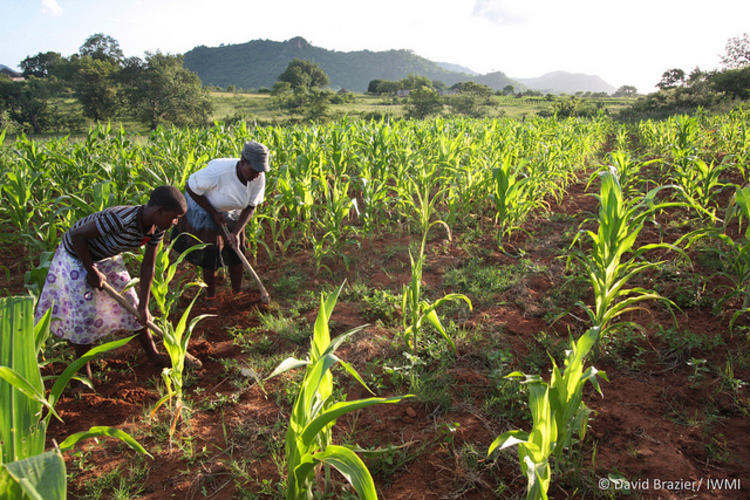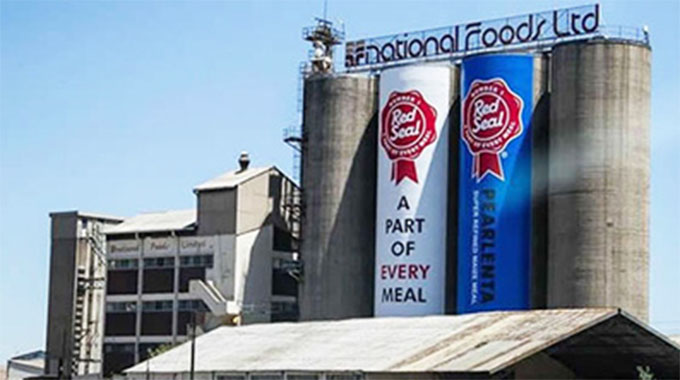Seed to Food: Innovate, consolidate and sustain

 Dr Anxious J Masuka —
Dr Anxious J Masuka —
Climate change has become an everyday phrase. But it was especially in vogue leading to and following the Paris Climate Summit in December 2015.
The Zimbabwe Agricultural Society (ZAS) added its voice, complementing efforts by various stakeholders, when it adopted for the year 2015 the annual theme, “Enhancing Agricultural Productivity: Managing Climate Change”. During 2016 the ZAS, of necessity, adopted the theme “Climate Resilience: The New Agricultural Frontier” signifying a shift in focus from “awareness” to “action”.
There is a gap between knowing and doing. We now know that public information about climate change does not necessarily positively correlate with pro-environmental behaviour, so illuminating and highlighting the benefits of addressing climate change could likely inspire more climate change action.
That action must be premised on integrating mitigation and adoption measures into our agricultural routines to make farming sustainable, productive and viable to ensure and assure food and nutrition security for Zimbabwe. This long, necessary and arduous journey continues.
All hands on deck
In 2017 the theme for the ZAS focusses on the hyper- alignment and laser-focused attunement of the various value chain actors to produce sufficient food for the nation thus: “Seed to Food: Innovate. Consolidate. Sustain.”
With a firmly grounded resource-based strategy, willing and capable actors, a solid foundation and a common goal, it has been proven, by historical and contemporary comparison, that a value chain approach is perhaps the most cost-effective mechanism of rallying consensus, and accelerating progress and improving the socio-economic status of the actors, with consequent and wider positive multiplier effects on the national economy.
Collaboration, cooperation, trust and transparency by actors strengthens the value chain from ideation, through to inputs suppliers – of machinery seed, chemicals, fertiliser, fuel, labour; to available, affordable and appropriate interest and correctly tenured financial resources; to competent and motivated farmers; to assured markets through transparent, viable and sustainable off-take arrangements; to the availability of a ready market of perceptive consumers of quality, affordable and competitively priced products; and all this buttressed by, and perhaps enveloped in a predictable, conducive and enabling policy environment-Zimbabwe’s quantum leap into the food security territory is possible, navigable and inevitable.
Innovate
With a penchant for novelty comes doing the right things right, new ways of doing old things differently and doing new things.
At the farmer level the watch-phrase is “The Treble 10 Principle” or “T10”. This encompasses a focus on 1) quantity – increase in yield per unit area 2) quality – improving quality of produce (3) cost – reducing the cost of producing a unit.
This assures business viability. Novelty for seed houses, could mean new and better adapted varieties with low nitrogen use efficiency, and drought tolerance, and/or disease resistance, and varieties growing successfully at predicted higher temperatures and maturing earlier, without adverse yield reduction. It could be conservation agriculture interventions, and cheaper water capture and efficient irrigation technologies.
For fertiliser companies, this could mean deep placement technologies and new technologies to reduce costs, such as high analysis blends and novel pH ameliorants, while at the funding level this could translate to novel value chain financing excluding physical collateral models.
It could encompass better storage and grain protection technologies, as up to 25 percent of communal harvests are probably lost to pests and other agents during storage. It could mean state of the art information communication technology for enhanced farmer information on agronomy, on weather, on markets and on social issues affecting their communities and their resilience. It could mean new policies, for a “business as unusual approach” to radically change the course of events and spur economic growth through tailored special economic zones, being defined as“a strategic value chain” and not just a geographic reference. We require practical, relevant and cost-effective innovations for the local environment. The sky is the limit.
Consolidate
We must endeavour to remove the “collaborative overload” by galvanising efforts, including doing what we do not like in order to achieve what we like. We must address all parts of the chain so that they are strongly-coordinated, viable, interdependent, integrated and in harmony with the common goal, and then reinforce these ideas and activities to yield the desired effectiveness and efficiencies. With consolidation comes the triumvirate notions of continuity, repeatability and replicability. A product of repeatability and reproducibility is sustainability.
Sustain
Once innovation becomes a way of doing business, and with the value chain strengthened and consolidated, then it should be sustained through a dynamic, continual renewal and sharpening of activities and foci to sustain this food self-sufficiency state.
New actors could replace older ones, as processes and technologies become obsolete, to be replaced by market-led and need-oriented subtle interventions.
This circle is repeated, but on an upward trajectory, in space and time, because continuous improvement has been combined with ideation and a value chain enhancement strategy.
Icon rationale
According to ZAS Head of Sales and Marketing, Cynthia Tapera the choice of icon design is centred around depicting the farming cycle in a thriving environment.
The winnowing basket is the base of our icon and holds the entire cycle, the cultivated land, the maize in the field. The basket depicts productivity, fruitfulness and success. It, in itself is representative of food, thereby keeping in line with part of the theme, “seed to food” . The tractors, harvesters and silos symbolise “innovation, consolidation and sustainability”. “Our tone of voice is hopeful, strong, bold and visionary” Ms Tapera said.
Mr Masuka is the chief executive officer of the Zimbabwe Agricultural Society.








Comments